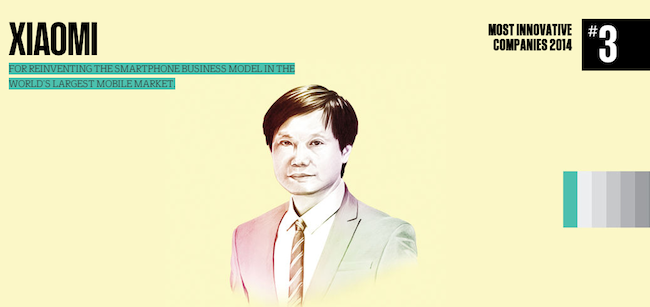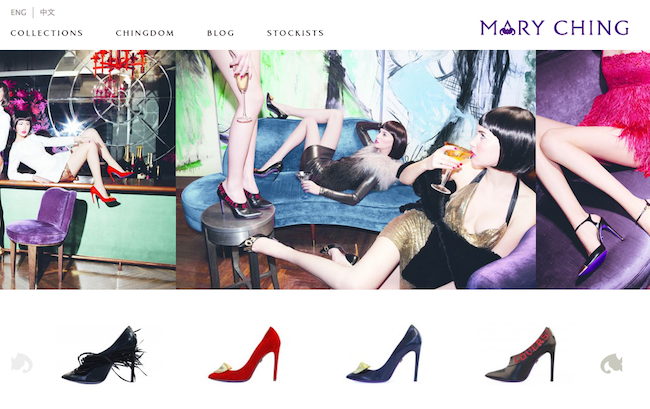Xiaomi is the world’s third most innovative company; “Made in China” now a compliment
For the longest time, China has been known as a manufacturing powerhouse and because of that, its quality of goods has a notorious reputation. Consumers shun away and give products a smirk whenever there is a “Made in China” label on it.
American consumers associate Chinese manufacturing with the terms “mass produced,” “cheap” and “poor safety standards” more than anything else.
However, that is now changing.
“Made in China” is now a compliment as the emphasis on quality is returning.
Fast Company just announced their own list of the World’s 50 Most Innovative Companies. Other than tech giants from the west such as Google, Apple, Tesla, Dropbox and a handful of others, several Chinese companies rose to the list, raising the eyebrows of industry watchers.
In particular, Xiaomi, emerged as the third most innovative company just behind Google and Bloomberg, beating several other companies including Apple and Nike. Xiaomi is reinventing the smartphone business, a segment that is exploding around the world now.
Also read: It’s official, China’s Apple, Xiaomi is coming to Singapore
The report on Fast Company read:
The upstart consumer-electronics company, just three years old, is a neophyte no more. Xiaomi released four new smartphones last year and sold almost 19 million, up more than 150% from 2012. It’s staking out a significant piece of the Chinese market with its low-cost, feature-rich devices. One model sold out its initial run–100,000 units–in less than two minutes.
Although founder Lei Jun is reflexively compared to Steve Jobs, Jun’s strategy is hardly the same as Apple’s: He sells his phones–in buzz-generating flash sales–at a razor-thin margin and then takes advantage of the longer potential revenue stream from software. (Another difference: Xiaomi actually shipped its smart TV in 2013.)
Other than Xiaomi, China based fashion mogul Alison Mary Ching Yeung also emerged as the 24th most innovative brand. Through her opulent footwear (her first bestseller was cashmere slippers with Chinese motifs) and accessories, Yeung hopes to redefine “Made in China.” Rather than connoting cheap, poorly made knockoffs, the phrase will signal luxury, creativity, and high quality. Mary Ching is among a new generation of fashion and luxury brands catering to the growing segment of middle and upper classes.
Also read: From rags to riches: The story behind Forever 21 cofounders
In recent years, momentum for change has been building, and Chinese manufacturers’ progress is undeniable, said Joe Baladi, head of consulting at the Leo Burnett Institute of Behaviour in Singapore and author of The Brutal Truth About Asian Branding.
“Manufacturing standards have certainly improved over the past decade. Working conditions have also improved, relatively speaking.” said Baladi.
More and more companies in China are starting to realize the importance of product and services quality, and fight hard to shed the poor reputation the external world have towards China made products. With companies such as Xiaomi and Mary Ching leading the focus on quality, “Made in China” will soon be a compliment, if it isn’t already.
Also read: Sick of slow Internet speed? Come to Asia!
The post Xiaomi is the world’s third most innovative company; “Made in China” now a compliment appeared first on Vulcan Post.




